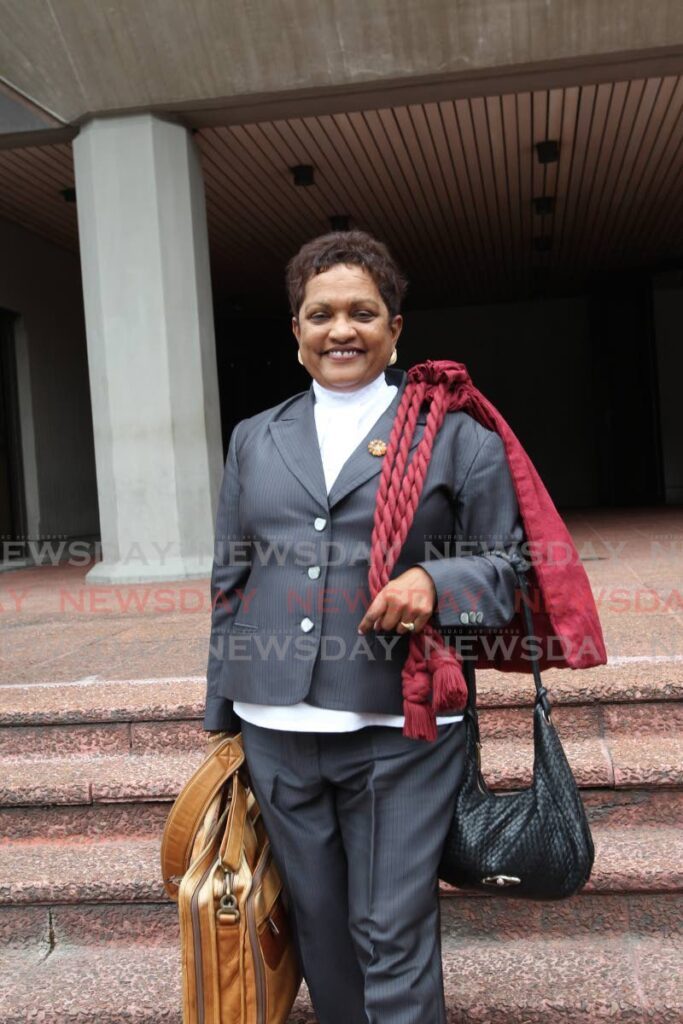Dana Seetahal murder accused wants answers from top cop

THE attorney for one of the men charged in the 2014 murder of Senior Counsel Dana Seetahal is calling on the Commissioner of Police to provide evidence that would be used against his client as well as answers to alternative theories surrounding the murder.
In a letter dated December 24, Quantum Legal attorney Aaron Lewis sent a long list of questions for the Commissioner of Police Erla Harewood-Christopher, requesting information under the Freedom of Information Act for his client who was charged in the May 4, 2014 murder.
Seetahal was gunned at 12.05 am in the vicinity of the Woodbrook Youth Facility after leaving a nearby casino.
On July 25, 2015, Earl Richards was one of 11 charged for Seetahal's murder of and being a member of a gang. The matter was set for trial in July 2020.
Among the numerous requests, Lewis said Richards applied for the list of the warrants issued in his name from 2012 to 2015 per the Interception of Communications Act; his voice algorithm; his fingerprints; all photographs of him; and any of his deoxyribonucleic acid (DNA) and its chain of custody.
"He is entitled to request his personal information from the TTPS to ensure they follow their statutory and constitutional duties. This ensures his right to a fair and public hearing by an independent and impartial tribunal as per section 5(2)(f)(ii) of the Constitution of TT. It is needed to prepare his defence."
Lewis said digital evidence was used against his client during his Preliminary Inquiry so he also requested all the digital evidence involved. He said metadata could be manipulated and wanted a qualified forensic expert to analyse the recordings to determine if any were manipulated.
He also presented eight theories surrounding Seetahal’s death and requested documentation supporting why these theories and accusations were either accepted or rejected by the police, and whether or not the theories were presented to the Office of the Director of Public Prosecutions for his advice and his decision on each.
One of the theories said the US Human rights reports of TT indicated government officials aligned to more than one political party were tied to human trafficking and the illegal drug trade, with counterparts outside of Trinidad. He said Seetahal was investigating this before her death.
He also requested the names of any members of Parliament (past or present) who were suspects or investigated in Seetahal’s death.
“You must agree that any failure to investigate theories regarding the death of Ms Seetahal would be illegal, irrational and procedural unfairness, violating the applicant’s constitutional rights enshrined in the Constitution. Do you agree with this postulation? If yes, we need you to please state so in writing. If your answer is not affirmative, we ask you to indicate your reason(s).”
In addition to suggesting the police failed to investigate all the theories surrounding Seetahal’s death, he suggested the police failed to protect her life. He said given that the Strategic Services Agency (SSA) knew about the threats to her life but did not use its resources to protect her, it was a breach or omission to perform a duty and a violation of Seetahal’s right to life.
He added that the police received advanced warning from the SSA before Seetahal’s death and asked for all information, data, records, memos, notes, station diary notes and pocket diary extracts that assisted in the accepting or rejecting the contention.
And since that evidence was used against Richards in the Preliminary Inquiry, he asked for copies of records and documents, including analysis, telecommunications and threats received from the SSA about Seetahal’s potential death.
He stressed that Richards was entitled to the information on whether the police was aware of the threats made to Seetahal’s life; the evidence against him; and his personal information such as his arrest warrants and DNA under the Data Protection Act.
“Any failure to adhere to our demands can amount to a breach of the DPA and the applicant’s right to a fair trial, liberty, private and family life, and equal treatment from a public authority in exercising any function.”
The letter asked if Harewood-Christopher agreed with the statements and requested documentation to support her response including copies of records, documents, data, memos, emails or correspondences.
Additional requests included the following:
Can you confirm or deny that the investigation into Seetahal’s death was free from undue influence by suspected perpetrators, political parties, or other powerful groups?
Can you confirm if new leads were generated for further investigation after the applicant was charged? Can you confirm if each hypothesis or theory was investigated regarding the death of Seetahal?
Do you accept or reject the contention that the TTPS is responsible for Seetahal’s death?
Did the TTPS know of Ms Seetahal involvement in international drug investigations conducted by the (US) Drug Enforcement Administration?
Can you confirm the existence of a personal information bank in your ministry?

Comments
"Dana Seetahal murder accused wants answers from top cop"